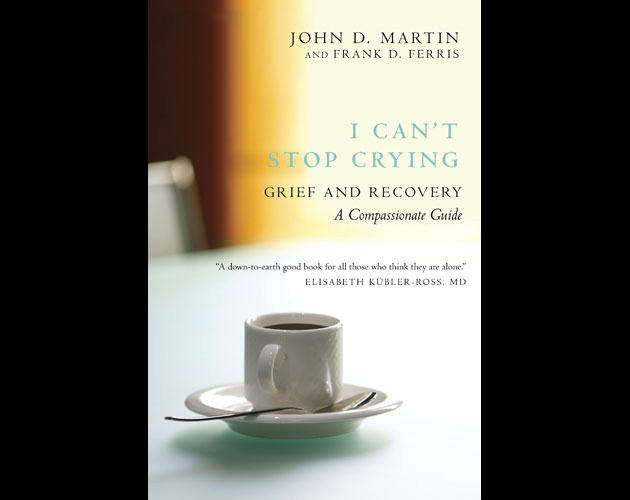On Grieving — Permission to Do What You Need to Do

People often ask me what the key is to dealing with grief. I have come to believe that so much of coping with grief is giving yourself permission to feel the deep pain and emptiness that come with losing someone very close to you.
Jack is a young man who came to see me six months ago. His wife, Trish, had died more than a year earlier. Although he had spent time with his family doctor and two psychiatrists, he felt that he had made very little progress since her death. At the end of our third meeting, he told me something quite astonishing, something you may already have experienced:
“You are the only one who has given me permission to grieve, who has said it’s okay to feel sad and lonely. Everyone else told me to get on with it, to move forward and let the past be the past.”
Permission is indeed the key to grieving. Without permission, you can’t even get started.
Our society is not comfortable with granting someone permission to grieve openly. By and large, we are private people who keep things to ourselves. Even as children, we are told, “Don’t yell. The neighbours will hear,” or “Pull yourself together and stop crying. Do you want everyone to see that you’re a mess?” But, when you’re grieving, a mess is exactly what you need to be for a time, and you need to know that you have permission to be that way until you’ve taken the time you need to work through all of those difficult feelings.
Unfortunately, even if people understand that you have recently lost someone very close to you, many will have difficulty giving you permission to grieve. It can be very uncomfortable for them to watch you cry or moan, or feel sad, or get angry, especially if they have never been exposed to death or grief before.
When you are unwell, you probably visit your doctor, and often you may be prescribed pills to fix you up quickly. When you are grieving or sad, people tend to want to fix you up quickly as well. I can’t count the number of times I’ve heard someone say, “You need a sedative, a sleeping pill, or a tranquilizer to settle you down.” What a perfect way to suggest to you that you’re doing something wrong, that you’re not acting appropriately. If you are grieving the loss of your partner or someone very close to you, you are bound to be upset. You have every reason to be upset. You need to be upset. Taking a sleeping pill only applies a mask, or a band-aid to the situation. It suppresses the feelings that need to happen. I’ve heard dozens of times, “Mother’s not going to sleep tonight, she’s so upset.” Indeed, she has every reason to be upset, and does not need her grief stifled by a pill. Some things simply cannot be fixed up quickly, especially with a pill. Of course, we may need medication to help us through, but pills are not necessarily the answer to every problem.
Although it’s a crude one, food poisoning is a good analogy for grief. If you’ve eaten bad food, the sooner you vomit it up, the faster you’ll recover. If you don’t, the poisons could affect your whole system and make you very sick.
Your emotions, like toxic food, bubble around inside you and need to be released. Grief and the feelings that go along with it will not go away if you ignore them. You need to find ways to express your hurt. You need to give yourself permission to get rid of your awful feelings of anger, despair, and sadness. The sooner you let them out, the sooner you will begin to heal yourself and move on. Cry, scream, get angry, find someone who will listen and stay close to you. If you are not surrounded by obvious supporters, find a therapist, find a bereavement group, and find some avenue of expression. You are experiencing raw, new, frightening emotions that need to be exorcised. If you don’t find some place that’s safe to work through your emotions, you may well live with your grief for much longer than you ever imagined.
(Excerpted from I Can’t Stop Crying: Grief and Recovery A Compassionate Guide. Copyright © John D. Martin and Frank D. Ferris. Published by McClelland & Stewart, a division of Random House of Canada Limited. Reproduced by arrangement with the Publisher. All rights reserved.)
John Martin has extensive experience in bereavement counselling for individuals and groups. He has lectured on grief and bereavement and taught bereavement support skills to physicians, health care professionals, and volunteers. He also contributed to I Don’t Know What to Say: How to Help and Support Someone Who Is Dying by Dr. Robert Buckman. John Martin lives in Toronto.
Frank Ferris, MD, is the Executive Director, Pallative Medicine, Research and Education at OhioHealth in Columbus and Director, International Programs at San Diego Hospice.